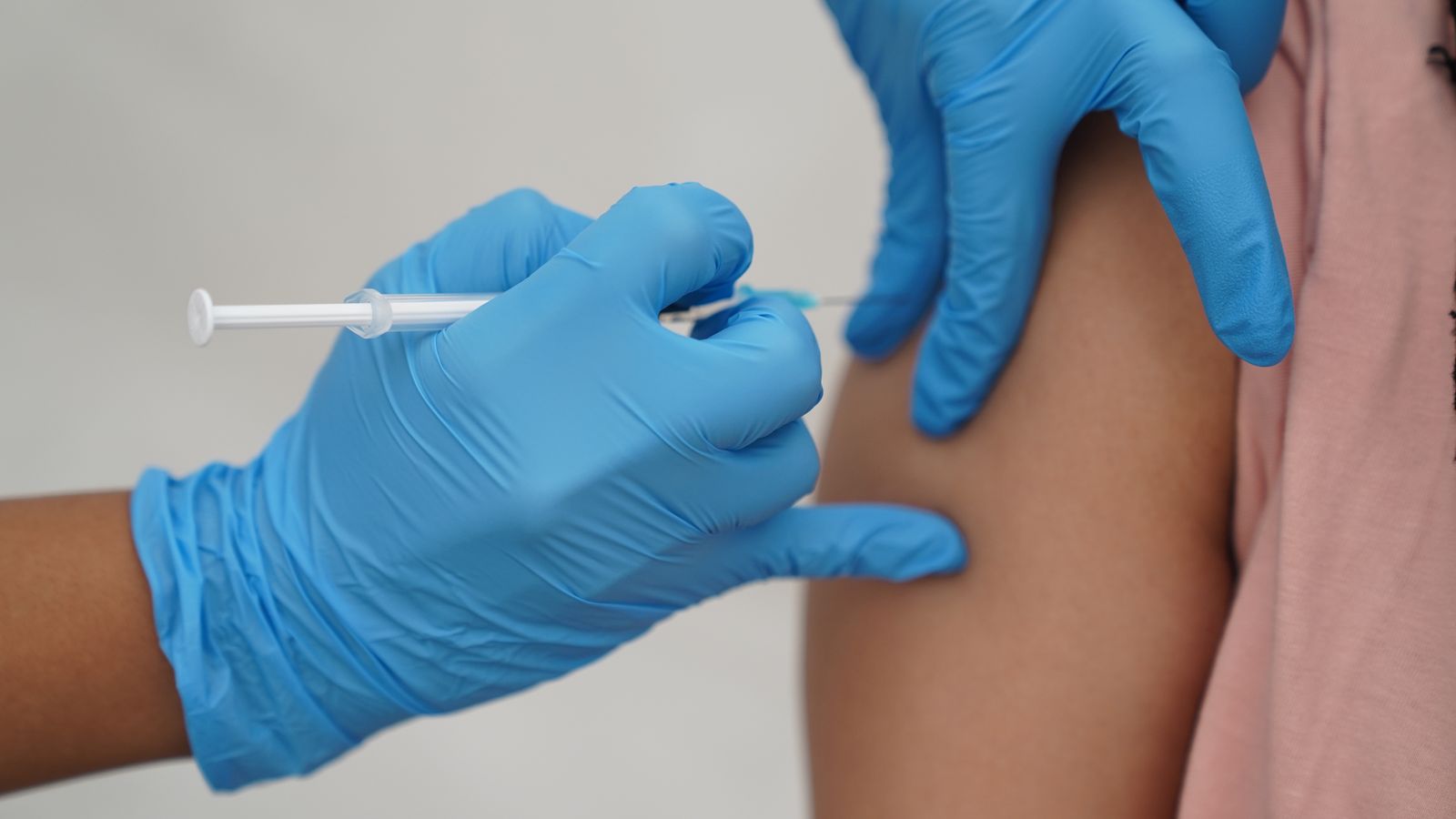The Omicron variant of COVID-19 is less likely than Delta to result in long COVID in people who have had two doses of vaccine, new figures have suggested.
Data from the Office for National Statistics (ONS) has shown the odds of double-vaccinated adults infected with the Omicron BA.1 strain reporting having long COVID four to eight weeks later were 50% lower than those who had Delta.
The experimental statistics, which were published on Friday, also suggested there is no evidence of a difference in risk of long COVID between first infections with Delta compared to the Omicron BA.1 and BA.2 variants among triple-vaccinated adults.
But the ONS said the odds of triple-jabbed adults reporting long COVID symptoms four to eight weeks after first being infected were 22% higher with the Omicron BA.2 variant compared to the BA.1 strain.
There was, however, no statistical evidence of a difference in the likelihood of activity-limiting long COVID between the Omicron BA.1 and BA.2 variants.
The ONS said: “Among double-vaccinated, adult study participants, the socio-demographically adjusted prevalence of self-reported long COVID four to eight weeks after a first coronavirus (COVID-19) infection compatible with the Delta variant was 15.9%. This is compared with 8.7% for infections compatible with the Omicron BA.1 variant.
“Among triple-vaccinated adults, there was no statistical evidence of a difference in the adjusted prevalence of self-reported long COVID between first infections compatible with the Delta variant and those compatible with either Omicron BA.1 or Omicron BA.2.
COVID-19: Women more likely than men to gain weight during pandemic lockdowns, study suggests
COVID-19: World Health Organisation estimates 15 million people have died directly or indirectly from coronavirus
COVID-19: Deaths involving coronavirus rise for sixth successive week in England and Wales, ONS says
“However, adjusted prevalence was higher for infections compatible with Omicron BA.2 (9.3%) than it was for those compatible with Omicron BA.1 (7.8%).”
Long COVID symptoms are estimated to be adversely affecting the day-to-day activities of 1.2 million people, around two-thirds of those with self-reported long COVID.
Please use Chrome browser for a more accessible video player
Self-reported long COVID is defined as symptoms that last for more than four weeks after a first suspected coronavirus infection that could not be explained by something else.
Separate figures from the ONS, also published today, showed an estimated 1.8 million people in the UK were likely to be experiencing symptoms of long COVID in the four weeks to 3 April, the equivalent of 2.8% of the population.
This is up 6% from 1.7 million people a month earlier, and includes 791,000 people who first had COVID, or suspected they had the virus, at least one year ago, which is the highest number so far.
Read more:
WHO estimates 15m people have died directly or indirectly from COVID
Women more likely to gain weight during lockdowns, study suggests
About 346,000 people (19%) reported their ability to undertake day-to-day activities has been “limited a lot”, the ONS added.
The ONS figures are based on self-reported long COVID from a representative sample of people in private households in the four weeks to 3 April.








